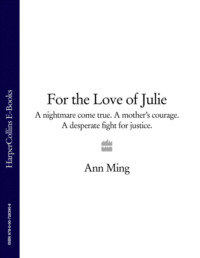For the Love of Julie: A nightmare come true. A mother’s courage. A desperate fight for justice.

Добавить В библиотекуАвторизуйтесь, чтобы добавить
Добавить отзывДобавить цитату
For the Love of Julie: A nightmare come true. A mother’s courage. A desperate fight for justice.
Вы ознакомились с фрагментом книги.
Для бесплатного чтения открыта только часть текста.
Приобретайте полный текст книги у нашего партнера:
Всего 10 форматов
Авторизация